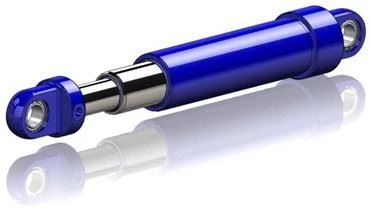2023-12-19
Causes Of Overheating Of Hydraulic Cylinders
a. Diesel Engine Combustion System: The combustion of fuel in the diesel engine produces heat as a byproduct. This heat needs to be managed effectively to prevent overheating of the engine.
b. Hydraulic System: The flow of hydraulic oil in the hydraulic system generates pressure energy, which leads to heat generation. This heat is dissipated into the hydraulic oil and engine oil.
c. Frictional Heat: During the operation of the hydraulic transmission and other moving parts in the transmission system, friction occurs, resulting in the generation of heat.
d. External Factors: Construction machinery often operates in environments with solar radiation, which can contribute to the overall heat generation and potential overheating.
Insufficient Cooling of Heat Dissipation Source: Inadequate cooling of the heat dissipation source can be attributed to several factors:
a. Poor Cooling Device: If the cooling device, such as radiators or coolers, is not functioning optimally, the cooling medium (such as coolant or oil) may not effectively absorb and dissipate the waste heat generated by the heat source. This can lead to reduced heat dissipation capacity.
b. Low-Quality Cooling Hydraulic Pressure: The quality of the cooling hydraulic pressure can affect the overall cooling efficiency. If the pressure is inadequate, it may result in insufficient heat dissipation.
c. Excessive Waste Heat Generation: Factors such as high ambient temperatures or operating errors can contribute to an increase in waste heat generation. This can overwhelm the cooling system's capacity and result in slow or inadequate cooling.
Managing heat dissipation is crucial to prevent overheating and ensure the efficient operation of machinery. It involves maintaining the cooling devices in good working condition, using high-quality cooling mediums, and monitoring operating conditions to avoid excessive heat generation.

Prev : No More!